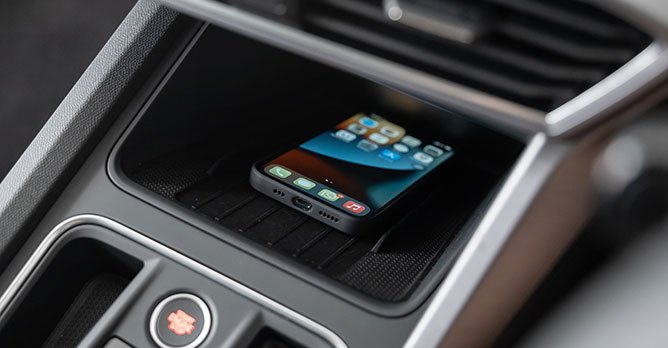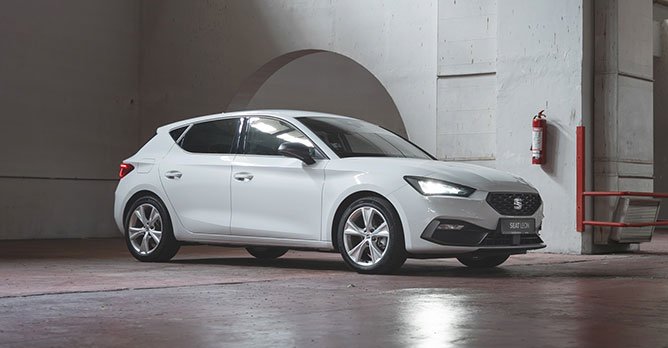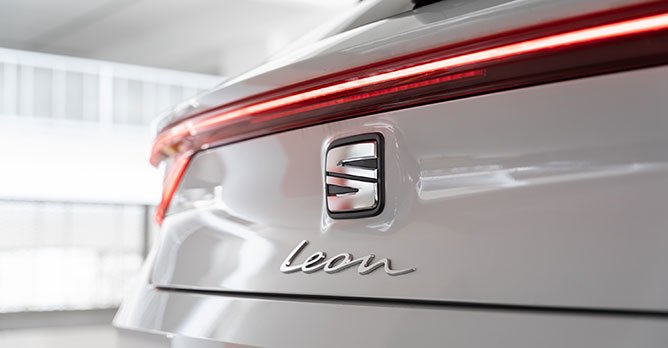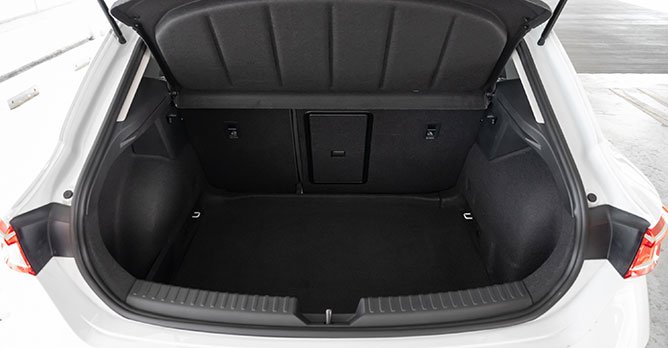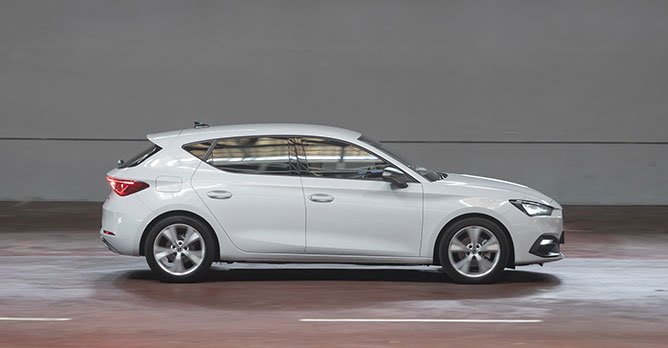SEAT Leon Mild Hybrid 1.5 TSI DSG FR (A) Review
10 Jun 2022|13,333 views
What We Like
Sharp, modern looks
More affordable price tag over its rivals
Cabin is a more delightful place to be than the Audi A3 and the VW Golf
Holds itself well around bends
It'll fit the family of four without fuss
What We Dislike
Lacks desirability over strong rivals
If you're not familiar with this car here on this very page, don't worry. The Seat Leon, as it's called, is essentially a Spanish hatchback that shares the same mechanical parts as the premium Audi A3 Sportback and the ever-popular Volkswagen Golf.
And even though the Seat Leon isn't as popular as its competitors, the Spanish hatchback actually outweighs them in more ways than one.
Price matters in the current market
For starters, the Seat Leon will set you back $149,888. The Audi and Volkswagen, on the other hand, will require you to dig deeper into your pockets at $204,415 and $169,900 respectively (all prices as of 30 May 2022). And this is where things get more realistic because when push becomes shove, the differences can translate to whether an average buyer like you and me decides to buy the car.
Of course, we will also have to understand that while all three cars are very similar under the skin, the Audi is obviously like buying a Rolex watch, the Golf is like Omega and the Leon is akin to a Tag Heuer. And, yes, even though all three watches are designed to do the exact same thing (which is to tell the time, obviously), the exclusivity and prestige that come with the brands differ.
Sure, the Seat Leon is more accurately pitched against cars like the Honda Civic Hatchback, the Mazda3 Hatchback and the Opel Astra, but comparing the Leon with the two German hatchbacks is highly inevitable, considering how they are all based on the same platform and are all from the same Volkswagen Group.
Design matters in a sea of hatchbacks
Secondly, because they're all from the same group, the cars in this class are similarly handsome. But it's also because the A3 and Golf look more evolutionary than revolutionary compared to its predecessors, that the Leon instantly stands out on first glance.
Styling is sharp, lines have been tightened and the snout has been designed to be more distinctive (like the Seat Tarraco). Not to mention, even the rear has been made over, with a full-width taillight and a new font design for the Leon moniker taking centre stage. It's not so much about being bold here. Rather, the Spanish carmaker has focused more on the car being sophisticated, which is a refreshing touch to say the least.
Things get better on the inside. While the setup here looks similar to its cousin rivals, the Leon stands out with the 10-inch touchscreen infotainment system that houses ample features and icons that are bright and nonchalantly saturated. Also nicely designed is the sharp 10.2-inch digital instrument cluster, but what takes the cake here that gives it an edge over its peers is the ambient lighting that illuminates the top of the doors and the full width of the dashboard.
Space wise, it's standard hatchback affair, which means it'll fit three at the back with a bit of a squeeze, while the 380-litre boot space is competitively-sized with the rest in its class.
Driveability matters in this class
Lastly, just as equally competitive as its peers is the way the Seat drives. It's a comfortable ride, even over undulations, bumps and ruts, but never to the point of being far too 'loose'. Having driven the Seat Leon over three days, the car does feel a tad stiffer than the A3 and the Golf. As a result, the Leon will still happily agree with you when you push it hard around long and winding roads.
It turns in keenly and sharply, with little lean on either sides and there's ample grip from the Michelin Primacy 4 rubbers. Unfortunately, there is some lack of communication from the steering but it still manages to entertain with its accurate tendencies.
However, with its 1.5-litre turbocharged mild hybrid powerplant, you do experience some lag from the word go. Good thing is it pushes out figures that are adequate for daily driving - 148bhp and 250Nm of twisting force to the front wheels via a silky smooth seven-speed dual-clutch auto box.
Being pragmatic matters. Period
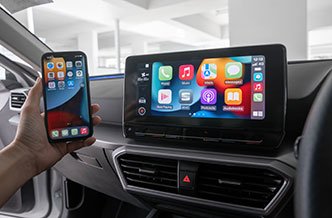 | 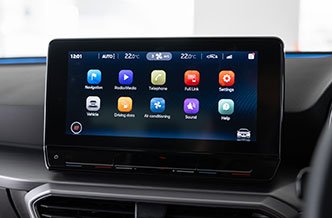 |
Add to these its more affordable price tag and the Leon could well entice and captivate budget-conscious car buyers from the Germans into something that's sharper-looking, smarter, and just overall cooler, more so when COE prices are now sky high.
So, really, it doesn't matter if the Seat Leon isn't as popular as its competitors, because the hatchback actually outweighs them in more ways than one.
Looking for a hatchback that's similar in size to the Seat Leon? Here are some options you can consider:
The A3 Sportback is a premium and familiar affair
Volkswagen Golf 8 is still at the top of its game
The Mazda3 Hatchback appeals on all fronts
Same but different with the Civic Hatchback
The Mercedes A-Class is bigger and better
The Opel Astra is a capable commuter
What We Like
Sharp, modern looks
More affordable price tag over its rivals
Cabin is a more delightful place to be than the Audi A3 and the VW Golf
Holds itself well around bends
It'll fit the family of four without fuss
What We Dislike
Lacks desirability over strong rivals
If you're not familiar with this car here on this very page, don't worry. The Seat Leon, as it's called, is essentially a Spanish hatchback that shares the same mechanical parts as the premium Audi A3 Sportback and the ever-popular Volkswagen Golf.
And even though the Seat Leon isn't as popular as its competitors, the Spanish hatchback actually outweighs them in more ways than one.
Price matters in the current market
For starters, the Seat Leon will set you back $149,888. The Audi and Volkswagen, on the other hand, will require you to dig deeper into your pockets at $204,415 and $169,900 respectively (all prices as of 30 May 2022). And this is where things get more realistic because when push becomes shove, the differences can translate to whether an average buyer like you and me decides to buy the car.
Of course, we will also have to understand that while all three cars are very similar under the skin, the Audi is obviously like buying a Rolex watch, the Golf is like Omega and the Leon is akin to a Tag Heuer. And, yes, even though all three watches are designed to do the exact same thing (which is to tell the time, obviously), the exclusivity and prestige that come with the brands differ.
Sure, the Seat Leon is more accurately pitched against cars like the Honda Civic Hatchback, the Mazda3 Hatchback and the Opel Astra, but comparing the Leon with the two German hatchbacks is highly inevitable, considering how they are all based on the same platform and are all from the same Volkswagen Group.
Design matters in a sea of hatchbacks
Secondly, because they're all from the same group, the cars in this class are similarly handsome. But it's also because the A3 and Golf look more evolutionary than revolutionary compared to its predecessors, that the Leon instantly stands out on first glance.
Styling is sharp, lines have been tightened and the snout has been designed to be more distinctive (like the Seat Tarraco). Not to mention, even the rear has been made over, with a full-width taillight and a new font design for the Leon moniker taking centre stage. It's not so much about being bold here. Rather, the Spanish carmaker has focused more on the car being sophisticated, which is a refreshing touch to say the least.
Things get better on the inside. While the setup here looks similar to its cousin rivals, the Leon stands out with the 10-inch touchscreen infotainment system that houses ample features and icons that are bright and nonchalantly saturated. Also nicely designed is the sharp 10.2-inch digital instrument cluster, but what takes the cake here that gives it an edge over its peers is the ambient lighting that illuminates the top of the doors and the full width of the dashboard.
Space wise, it's standard hatchback affair, which means it'll fit three at the back with a bit of a squeeze, while the 380-litre boot space is competitively-sized with the rest in its class.
Driveability matters in this class
Lastly, just as equally competitive as its peers is the way the Seat drives. It's a comfortable ride, even over undulations, bumps and ruts, but never to the point of being far too 'loose'. Having driven the Seat Leon over three days, the car does feel a tad stiffer than the A3 and the Golf. As a result, the Leon will still happily agree with you when you push it hard around long and winding roads.
It turns in keenly and sharply, with little lean on either sides and there's ample grip from the Michelin Primacy 4 rubbers. Unfortunately, there is some lack of communication from the steering but it still manages to entertain with its accurate tendencies.
However, with its 1.5-litre turbocharged mild hybrid powerplant, you do experience some lag from the word go. Good thing is it pushes out figures that are adequate for daily driving - 148bhp and 250Nm of twisting force to the front wheels via a silky smooth seven-speed dual-clutch auto box.
Being pragmatic matters. Period
Premium features like wireless Apple CarPlay (left) and a sizeable 10-inch touchscreen infotainment system make the Leon bang for buck
In reality, the new Seat Leon is the carmaker's best attempt to close the gap between itself and the Golf. To a certain extent, I reckon it's a success. Yes, it may not have the same high levels of desirability as the A3 or the Golf, but it's just as good to drive and has all the good qualities of a proper, functional hatchback.Add to these its more affordable price tag and the Leon could well entice and captivate budget-conscious car buyers from the Germans into something that's sharper-looking, smarter, and just overall cooler, more so when COE prices are now sky high.
So, really, it doesn't matter if the Seat Leon isn't as popular as its competitors, because the hatchback actually outweighs them in more ways than one.
Looking for a hatchback that's similar in size to the Seat Leon? Here are some options you can consider:
The A3 Sportback is a premium and familiar affair
Volkswagen Golf 8 is still at the top of its game
The Mazda3 Hatchback appeals on all fronts
Same but different with the Civic Hatchback
The Mercedes A-Class is bigger and better
The Opel Astra is a capable commuter
Car Information
SEAT Leon Mild Hybrid 1.5 TSI DSG FR (A)
CAT B|Petrol-Electric|20km/L
Horsepower
-
Torque
250 Nm
Acceleration
8.5sec (0-100km /hr)
This model is no longer being sold by local distributor
All Used SEAT Leon Mild HybridThank You For Your Subscription.


















































